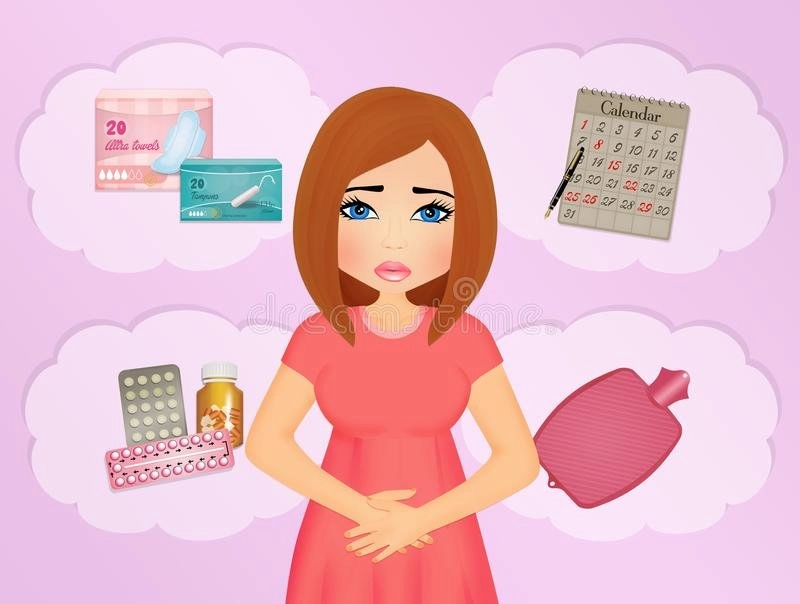
Problems with menstruation
Menstrual cycles often bring about a variety of uncomfortable symptoms leading up to your period. Premenstrual syndrome (PMS) encompasses the most common issues, such as mild cramping and fatigue, but the symptoms usually go away when your period begins.
However, other, more serious menstrual problems may also occur. Menstruation that is too heavy or too light, or the complete absence of a cycle, may suggest that there are other issues that are contributing to an abnormal menstrual cycle.
 Remember that a normal menstrual cycle means something different for every woman. A cycle that’s regular for you may be abnormal for someone else. It’s important to stay in tune with your body and to talk to your doctor if you notice any significant changes to your menstrual cycle.
Remember that a normal menstrual cycle means something different for every woman. A cycle that’s regular for you may be abnormal for someone else. It’s important to stay in tune with your body and to talk to your doctor if you notice any significant changes to your menstrual cycle.
Premenstrual Syndrome,PMS occurs one to two weeks before your period begins. Some women experience a range of physical and emotional symptoms. Others experience few symptoms or even none at all.
Hevay periods,Another common menstrual problem is a heavy period. Also called menorrhagia, heavy periods cause you to bleed more than normal. You may also have your period for longer than the average of five to seven days.Menorrhagia is mostly caused by imbalances in hormone levels, especially progesterone and estrogen.
Absent Periods,In some cases, women may not get their period. This is called amenorrhea. Primary amenorrhea is when you don’t get your first period by age 16. This may be caused by an issue with the pituitary gland, a congenital defect of the female reproductive system, or a delay in puberty. Secondary amenorrhea occurs when you stop getting your regular periods for six months or more.
A missed period could mean that you’re pregnant. If you suspect you may be pregnant, be sure to take a pregnancy test. Drugstore pregnancy tests are the least expensive way to determine whether or not you are pregnant. To get the most accurate results, wait until you have missed your period by at least one day before taking the test.
Painful periods,Not only can your period be lighter or heavier than normal, but it can also be painful. Cramps are normal during PMS and they also occur when your uterus contracts as your period begins. However, some women experience excruciating pain.
The first step in diagnosing menstrual problems is to see your doctor. Your doctor will want to know about your symptoms and for how long you’ve been experiencing them. It may help to come prepared with notes on your menstrual cycle, how regular it is, and any symptoms you have been experiencing. Your doctor can use these notes to help figure out what is abnormal.
Blood tests can help determine whether hormonal imbalances are causing your menstrual problems. If you suspect that you may be pregnant, your doctor or nurse practitioner will order a blood or urine pregnancy test during your visit.
The type of treatment will depend on what’s causing the problems with your menstrual cycle. Birth control pills can relieve symptoms of PMS, as well as regulate heavy flows. If a heavier or lighter than normal flow is related to a thyroid or other hormonal disorder, you may experience more regularity once you start hormone replacements.










